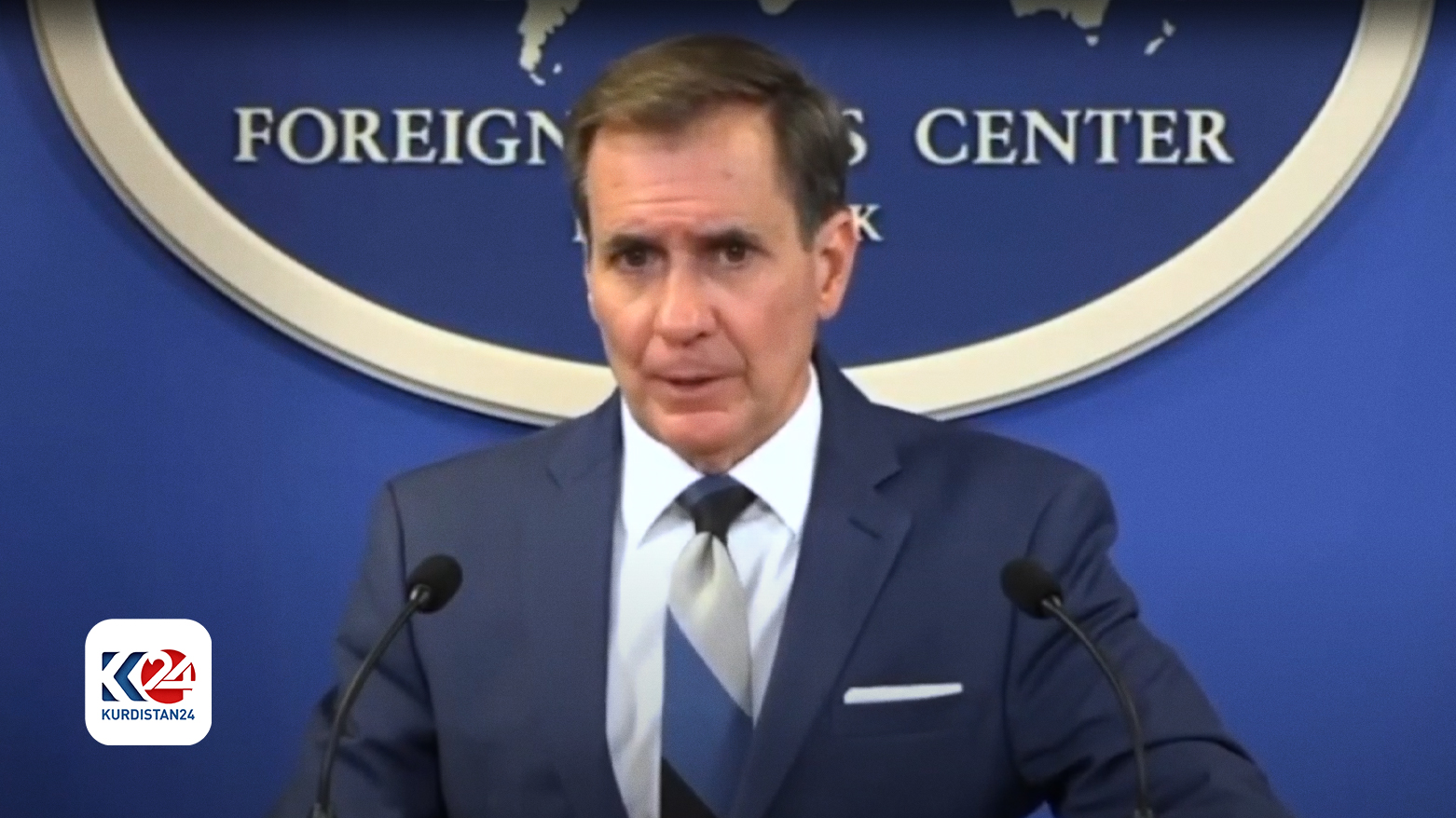Rep. McCaul Blasts “Potential Withdrawal of US Troops from Iraq,’ as US Officials Remain Tight-Lipped
ISIS is “still dangerous" and “we want to continue to work with Iraq to see what makes the most sense" to be "able to continue to go after that threat.”

WASHINGTON DC, United States (Kurdistan 24) – The Chairman of the House Foreign Affairs Committee, Rep. Michael McCaul (Republican, Texas), issued a statement on Monday strongly criticizing the possibility that the Biden administration “may withdraw U.S. troops from Iraq, despite continued threats posed by ISIS and affiliates to U.S. national security.”
“I remain deeply concerned about the possibility of committing to a time-bound withdrawal from Iraq, as we see an uptick in ISIS attacks across the Middle East, and ISIS infiltration across the U.S. southern border,” McCaul said.
“In 2011, we withdrew from Iraq before our counterterrorism mission was complete,” he continued, and “just a few years later, ISIS had overrun the country and established a so-called ‘caliphate.’”
U.S.-Iraq Negotiations
Since the visit of Iraq’s new prime minister, Mohammed Shi’a al-Sudani, to Washington last spring, the U.S. and Iraq have been holding military talks on the future of the Defeat-ISIS (D-ISIS) Coalition.
Read More: U.S. Seeks to Broaden Ties with Iraq, as PM Sudani Makes First Visit to Washington
The results of those discussions are unclear. U.S. officials have said that they involve a transition from a multilateral, coalition-based security relationship with Iraq to a bilateral security relationship, and no decision has yet been made.
Read More: US: Talks with Iraq on ‘Transition’ from Coalition to Bilateral Security Relations are ‘Ongoing’
However, Iraqi officials have said that an agreement has been reached and that the change is far more extensive than U.S. officials have acknowledged.
They claim that the U.S. and Iraq have agreed that all U.S. forces will leave Iraq by September 2025, except for the Kurdistan Region, where they will remain until September 2026.
John Kirby, White House National Security Communications Advisor, briefed reporters on Wednesday in New York, on the sidelines of the UN General Assembly, and Kurdistan 24 asked him about the issue.
“There is a Higher Military Commission discussion between the United States and Iraq on force posture and what that looks like,” Kirby replied.
“But more critically, well beyond force posture is just the threat by ISIS, which still exists,” and what that means for “the evolution of the Defeat ISIS Coalition,” he continued.
Kirby reiterated what U.S. officials have consistently said: there is no final agreement yet.
“I won’t get ahead of final decisions one way or another,” he added. “As far as I know, there are still active discussions going on,” but ten years after the D-ISIS Coalition was established–as ISIS burst out of Syria’s civil war, crossed the border, and occupied one-third of Iraq– “ISIS is a different organization.”
ISIS is “still viable, still lethal, still dangerous to the people of Iraq, as well as to the American people,” Kirby said. “So we want to continue to work with Iraq to see what makes the most sense for both of us in terms of being able to continue to go after that threat.”
“Does it need to look exactly the way it’s looked over the last 10 years? Maybe not. But I think you’ll hear more from both our two countries here in coming days on that,” he concluded.
The Political Situation in Iran has not Changed
Kurdistan 24 also asked Kirby whether the human rights situation in Iran might change with the new president, Masoud Pezeshkian. Kirby’s answer was no.
“We’re not expecting any major course corrections or changes to Iranian behavior,” Kirby said, “not just in the field of civil and human rights, but also with respect to their destabilizing activities,” which Kirby then proceeded to enumerate.
That includes Iran’s “support for terrorist organizations in Iraq and in Syria, as well as the Houthis [in Yemen] and Hizballah [in Lebanon] and Hamas [in Gaza}, the so-called axis of resistance,” he stated.
Kirby described this as regrettable, but, as he explained, “The Supreme Leader is the ultimate decision maker,” and “he’s made pretty plain his desire to continue to be an antagonist to peace and security throughout the region.”